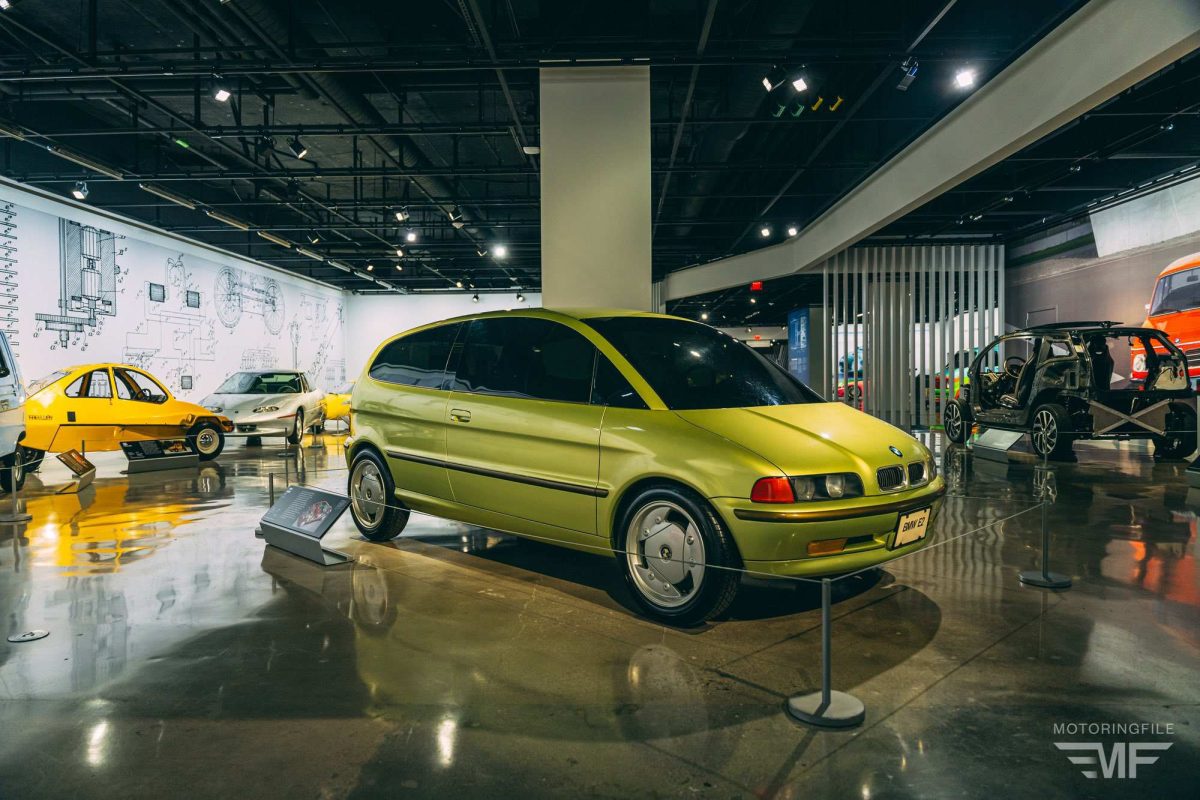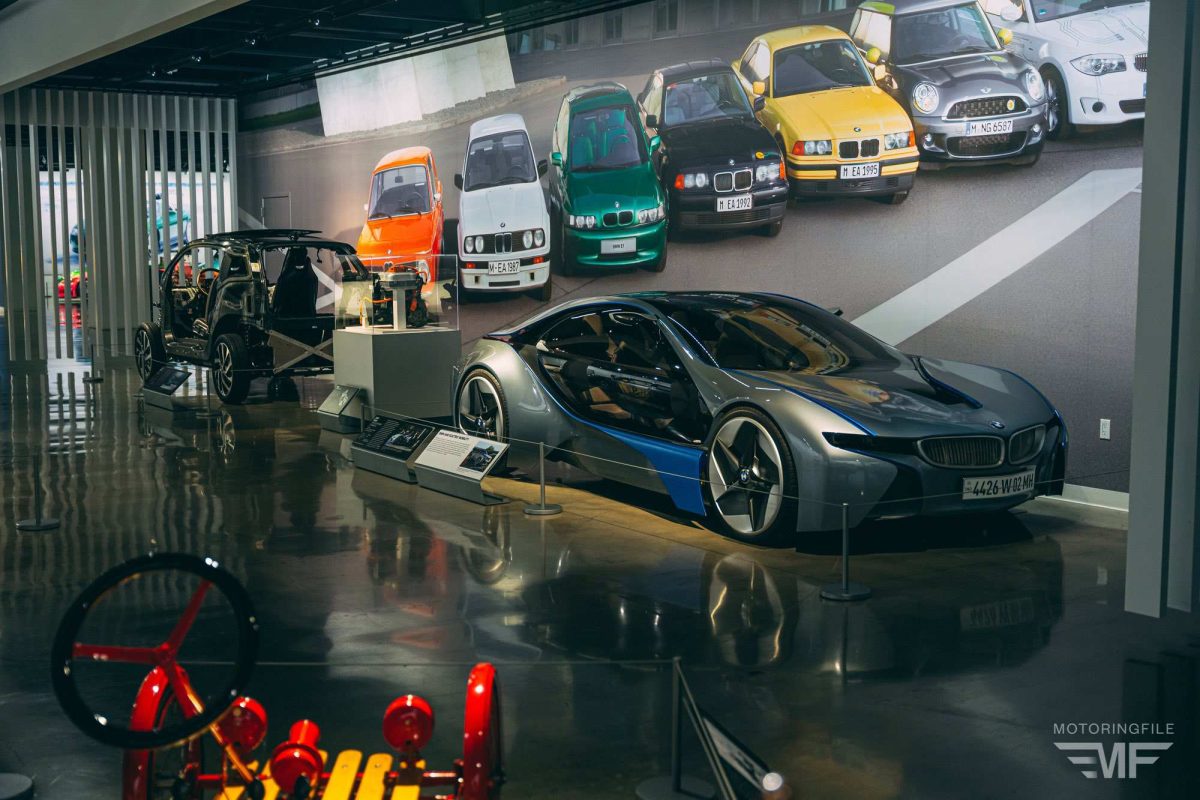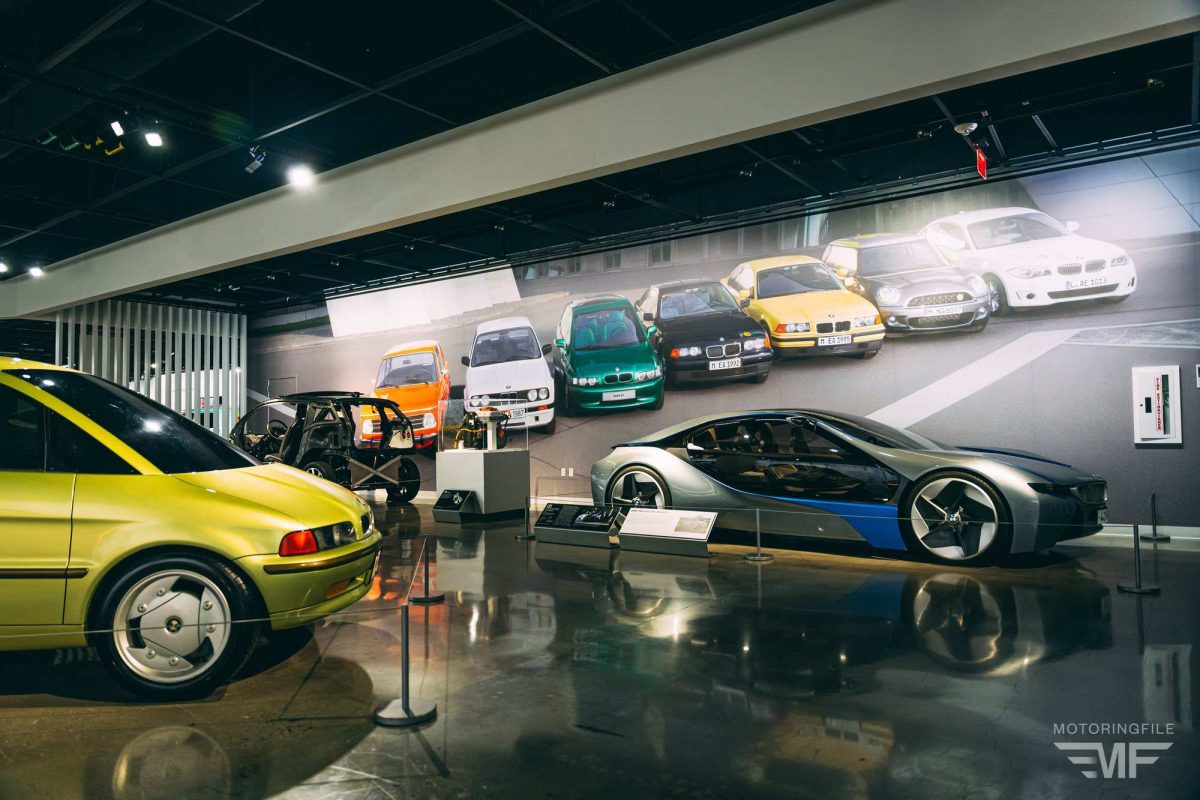BMW and MINI’s wealthy historical past of early EVs is being proven off for the primary time within the US at an exhibit Titled “Alternating Currents: The Fall and Rise of Electrical Autos.” Held on the Peterson Automotive Museum in LA, the exhibit traces the event of electrical autos (EVs) from the late 1800s to trendy instances and options key BMW and MINI merchandise. .
The Unique MINI E is Again
The 2009 MINI E marked a major step in BMW Group’s efforts towards electrical mobility, arriving after practically twenty years of developments in electrical motor and battery know-how. As a part of a subject trial, 450 MINI E autos had been made accessible to pick out clients in California, New York, and New Jersey, with a further 50 automobiles examined in Europe. Individuals had been chosen based mostly on their driving habits, residence suitability for a charging system, and their willingness to supply ongoing suggestions to BMW.

The MINI E retained the agility and dealing with of the usual MINI Cooper however featured a 204-horsepower electrical motor powered by a 35 kWh lithium-ion battery, providing about 150 miles of vary. To accommodate the battery, the MINI E was designed as a two-seater, and its electrical powertrain delivered quiet, emissions-free efficiency. The automobile’s powertrain was a collaboration between BMW Group and AC Propulsion Techniques in California.
With its robust acceleration and high velocity restricted to 95 mph, the MINI E mixed electrical effectivity with the driving expertise anticipated of a MINI. The insights gained from the trial had been vital to BMW’s Mission i, which aimed to develop a sensible electrical automobile for city environments, finally resulting in the manufacturing of the BMW i3 in 2013.
Following the trial, most MINI E autos had been returned and recycled, although a couple of examples stay. Many members, generally known as “electronauts,” went on to affix subsequent subject trials, together with the BMW Energetic E program, and have become early adopters of the i3.
The Revolutionary BMW E2 Idea
he BMW E2 Electrical Automobile Idea is making its first return to California since its debut in 1991. Designed within the early Nineteen Nineties, each the BMW E1 and E2 ideas had been notable for his or her innovation, whereas sustaining a mainstream look that mirrored BMW’s early ambitions in electrical automobile improvement. The E1, designed in Germany by BMW Technik GmbH, was powered by a 45-horsepower brushless DC motor mounted on the rear axle, using sodium-sulfur battery know-how. Two useful E1 prototypes had been created to check early electrical mobility applied sciences.
The E2, a bigger follow-up to the E1, was designed by California-based Designworks/USA (now totally a part of BMW AG) and unveiled on the 1991 Los Angeles Worldwide Auto Present. Chuck Pelly, founder and president of Designworks/USA on the time, defined that the purpose was to offer the E2 a extra commanding presence, with wider wheel flares and an prolonged outboard tire place. The design included a extra strong hood and bumper system, leading to a automobile that was longer, wider, and decrease than its predecessor, with a smoother and extra typical BMW design.

Inside, the E2 provided seating for 4, with space for storing behind the rear seat. The dashboard featured built-in driver and passenger airbags, together with a speedometer, vary indicator, and clock. Ahead/reverse controls and an electrical handbrake had been additionally included.
Regardless of their modern strategy, each the E1 and E2 initiatives had been shelved by the mid-Nineteen Nineties. However, these autos stay as early explorations of how BMW’s core driving philosophy might intersect with electrical mobility.
The BMW I3
The BMW i3, launched in 2013, marked a major step in BMW’s improvement of electrical autos. It was the primary mass-produced automobile to characteristic a Carbon Fiber Bolstered Plastic (CFRP) passenger cell, designed to make the automobile each gentle and powerful. This light-weight building helped enhance effectivity and efficiency whereas lowering the dimensions of the battery wanted for an inexpensive driving vary. The i3 was developed underneath BMW’s new “i” sub-brand, with a give attention to sustainability and electrical mobility.

Not like earlier electrical fashions just like the MINI E, which tailored current designs to electrical energy, the i3 was constructed from the bottom up as an electrical automobile. This gave the engineers extra flexibility in optimizing the automobile for electrical drive. Central to the i3’s design was its “LifeDrive” structure, which consisted of two elements: the passenger cabin (Life Module) manufactured from CFRP, and the aluminum-based Drive Module, housing the battery, motor, and structural elements. This separation allowed for a roomier inside whereas holding the automobile’s footprint compact, much like a BMW 1 Collection however with the area of a 3 Collection.
The light-weight CFRP building additionally allowed the automobile to be extra agile, with a low heart of gravity that improved driving dynamics. The absence of a standard transmission tunnel gave the i3 further inside area and a flat ground. On show fashions, BMW usually deconstructed the i3 to focus on its modern supplies and structure.

The i3 represented an early effort by BMW to make electrical autos viable for city mobility, a mission that was superior by the teachings discovered from earlier electrical fashions just like the MINI E. Its design and structure laid the groundwork for future electrical fashions underneath the BMW i sub-brand, illustrating the corporate’s strategy to combining sustainability with the driving expertise.
The BMW Imaginative and prescient EfficientDynamics
The BMW Imaginative and prescient EfficientDynamics, first unveiled on the 2009 Frankfurt Motor Present, was designed to display how effectivity, efficiency, and superior know-how might coexist in a modern, trendy automobile. With a high velocity capped at 155 mph and acceleration to 62 mph in 4.8 seconds, it provided a compelling mix of velocity and gasoline economic system, with consumption estimated at 62.6 mpg.
The powertrain mixed a 3-cylinder turbo-diesel engine with electrical motors on every axle. This setup, together with exact vitality administration, optimized each the automobile’s efficiency and effectivity. The overall system output was 356 horsepower, with a peak torque of 590 lb-ft. The mix of diesel and electrical motors enabled all-wheel drive in electrical mode, making certain clean energy supply and minimal vitality loss.

When it comes to design, the Imaginative and prescient EfficientDynamics departed from typical low-emission ideas. Its kind adopted a useful strategy, with each element serving to enhance effectivity. Measuring 48.8 inches in top, the automobile’s low, aerodynamic form evoked the look of a basic GT. Energetic louvers in entrance of the radiator diminished drag when cooling wasn’t required. Design components impressed by BMW’s motorsport expertise, corresponding to ducts within the A-pillars and taillights, helped channel airflow to reinforce stability and cut back gasoline consumption. The automobile’s flat underbody and strategic air deflectors contributed to a low drag coefficient of 0.22.

Different options included giant wheel covers designed to attenuate aerodynamic drag, whereas a “curtain” of air over the entrance wheels additional stabilized the automobile at excessive speeds. All these particulars contributed to the automobile’s environment friendly efficiency and distinctive design.
The Imaginative and prescient EfficientDynamics idea generated sufficient curiosity on the auto present circuit that BMW pursued manufacturing plans. This in the end led to the 2014 BMW i8, which introduced a lot of the idea’s know-how and design to the street in a manufacturing automobile.











The submit BMW & MINI Present Off Early Electrical Prototypes on the Petersen Automotive Museum appeared first on BimmerFile.


